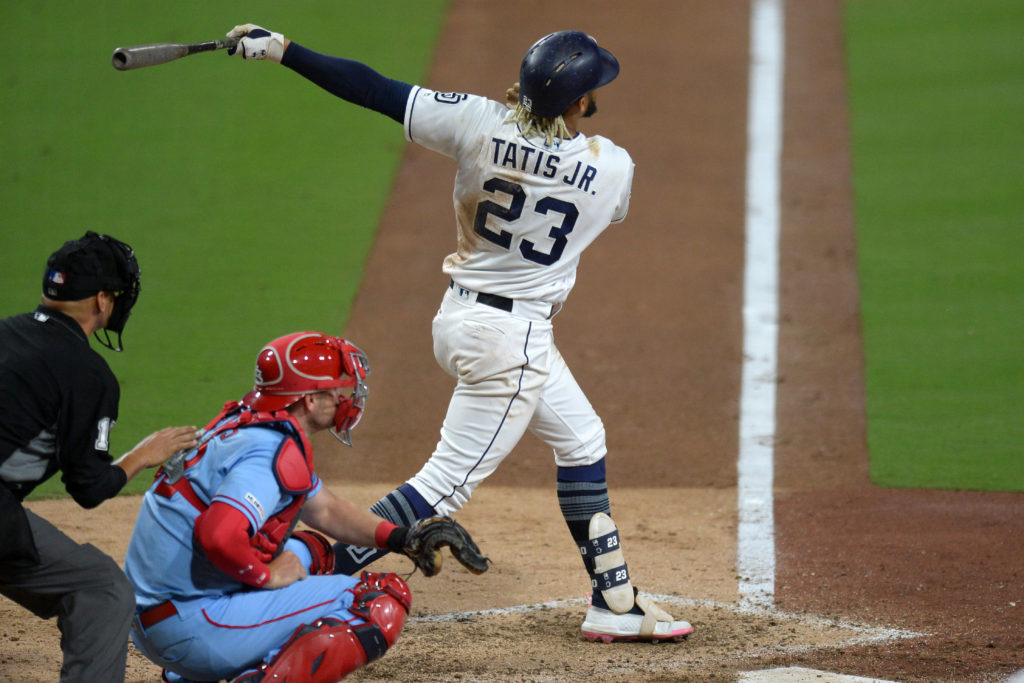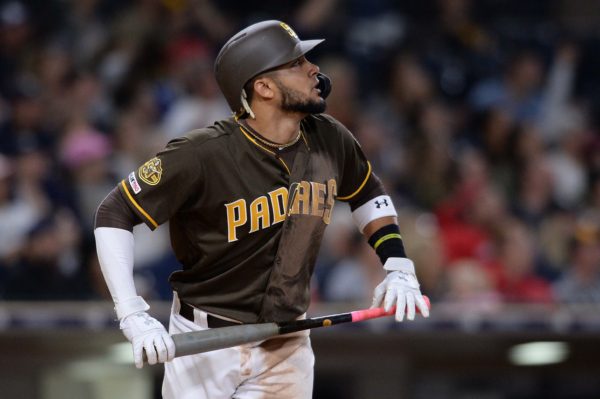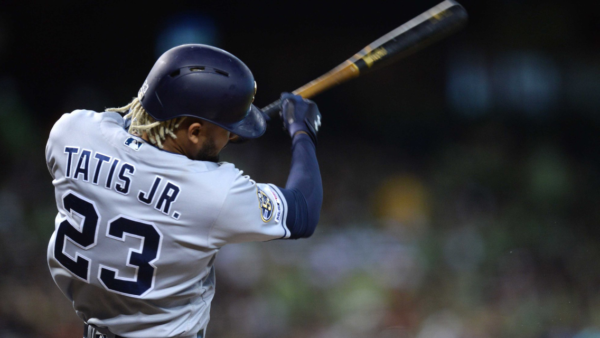How does Fernando Tatis Jr.’s rookie campaign compare to Mike Trout from 2012?

Mandatory Credit: Jake Roth-USA TODAY Sports

How does Fernando Tatis Jr.’s rookie campaign compare to that of Mike Trout?
Seven years ago, in 2012, the baseball world was blessed with the greatest single-season performance by a first-year player in the game’s history. Mike Trout, currently the game’s best player, took only 139 games to cement himself as a household name across the country.
Trout’s 2012 season was absurdly good, as the 20-year-old outfielder posted a .326/.399/.564 slash line with an OPS+ of 168, a 167 wRC+, and an fWAR of 10.1. He mashed 30 home runs, drove in 83 runs, recorded 182 hits, and also led the American League with 49 stolen bases. Had it not been for Miguel Cabrera winning the Triple Crown that year, Trout would’ve almost certainly won the MVP by a near-unanimous selection.
It’s hard to believe that anyone would match the production that Trout had in his rookie season. Albert Pujols, Fred Lynn, and Ichiro Suzuki all put up video-game-like rookie campaigns, but all three failed to reach the 10 WAR mark like Trout. Mark McGwire and Aaron Judge put up a fight as well, but they did most of their work from a power perspective while Trout did it all.
This year, one player, in particular, is putting on a season that may put him in this conversation with some of the game’s immortals.
Over on the west coast, Fernando Tatis Jr. is putting on a show for the San Diego Padres every single night. Acquired from the White Sox for James Shields in 2016, Tatis has done nothing but crush baseballs since joining the Friars. He broke the Midwest League home run record as an 18-year-old kid and barely played at the Double-A level before breaking camp with the team this past spring.
Well-known around baseball as one of the best overall prospects in recent memory, Tatis has not disappointed one bit in his first season at the major league level. Despite missing almost a month with a hamstring injury, Tatis is slashing .324/.387/.607 with 22 home runs, 53 RBIs, 104 hits, and 16 stolen bases. He’s posted a 3.9 fWAR, an OPS+ of 159, and a wRC+ of 156 in only 81 games this season.
So, how exactly does Tatis stand against the likes of Mike Trout?
To begin with, it’s important to note that Tatis is having this incredible rookie campaign despite missing nearly a month of action. He’s already the youngest shortstop in major league history to reach the 20 home run mark and is just four stolen bases away from a 20/20 season. Had he not gone down with a freak hamstring injury it’s likely that his numbers would be even more incredible than they already are.

It’s also important to know that, after the series finale against the Colorado Rockies, Tatis is finally eligible to qualify for the National League batting title. He currently slots in at number four, 12 points behind Christian Yelich, and if he is to win the award somehow, would be the youngest player ever to win a batting title. He would also become the third rookie in baseball history, behind Hall of Famers Al Kaline and Ty Cobb, to secure the award.
To have some fun with this, I decided to take Tatis’ numbers and extrapolate them over a 139 game span, which is the amount of games Trout played in his rookie season. This should be taken with a grain of salt, mostly because baseball is an unpredictable sport, but Tatis’ sustained success over half of a major league season makes this a little closer to being predictable than you would think.
Down below is a table of what the Padres’ shortstops numbers would look like, according to my calculations, over a 139 game span. Please note that these are not what I am predicting Tatis’ would do, nor saying this is exactly what would happen. This is just a mathematical calculation on what his numbers would look like in that time.

While the advantage still goes to Trout, Tatis makes a case for himself. Despite striking out at a much higher rate, all four averages are relatively similar and Tatis projects to have higher power numbers than Trout.
The biggest takeaway from this is simple: what Tatis is in the process of doing is absurd and should not be taken for granted. He’s truly putting on one of the greatest rookie seasons in baseball history, and when compared to a baseball legend, holds his ground.
Diego works at Prep Baseball Report as an Area Scout in Illinois and Missouri. He graduated this spring with a Bachelor Degree in Communications and played four years of college baseball, logging nearly 50 innings of work in a relief role. Diego hopes to work in an MLB front office one day and has been a Padres fan since he was six years old.